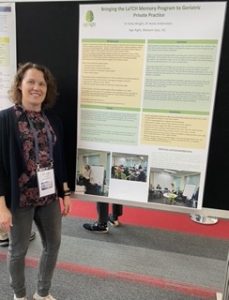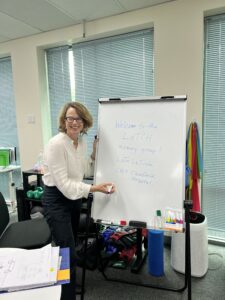Preventing Memory Loss and LATCH
As we get older our memory can get a little slower and result in some forgetfulness. This can worry people as they may become concerned, they have dementia. The worry can be so great they are scared to seek medical opinion. However, consultation and assessment can bring relief and reassurance. The stress and anxiety about the memory lapses can make the situation seem worse and exacerbate the stress on the memory bank which can be a spiralling situation.
It is normal for the ageing mind to take longer to process information. It can be normal for the facts to be vague and at times the tip of tongue syndrome occurs. That is the time when the word or name is on the tip of the tongue but doesn’t come out until later. In this situation, things are a little different to a few years ago but the person is still able to function independently and although noted by family and friends it doesn’t seem to be progressing or getting worst.
It can be helpful to see a geriatrician to ensure there are no exterior factors that may be influencing the memory. Some factors include: poor sleep quality, the side effects of medications, unstable medical condition, stresses influencing the memory ability and more.

A geriatrician can do a comprehensive assessment focusing on these modifiable factors with a medication review and also baseline cognitive testing to be recorded which will assist in future years if things change further.
Mild cognitive impairment can be diagnosed in people who are having memory or cognitive issues. This occurs when there has been a change in cognitive function more than normal ageing but it is not impacting on their lives or the ability to live independently. It is important to have a review with a geriatrician so that any exterior factors can be optimised to ensure independently living can continue for years to come. People diagnosed with mild cognitive impairment can use strategies to help with activities of daily living and maintain good quality of life and independence at home. A diagnosis of mild cognitive impairment can reassure people of the issue and help open the conversation for future optimisation of brain function. There are cognitive exercise programs that can be utilised to help optimise the brain such as the LaTCH program.
We often hear of lots of clinical research into healthy thinking, dementia prevention or cure trials in the media. There is a lot of research focusing on dementia but so far we do not have a cure. There are some medications referred to as cognitive enhancers, which do help some people. During your consultation at Age Right we can discuss these medications and determine if they are suitable for you. The aim of the medication is to decrease the decline caused by dementia allowing for more time living life to the full. Some people have an initial good response and improve on the medications in the initial stages. These medications are designed to increase your independence, help with anxiety and depressed mood and help with cognitive functions. There is also a non-medication option available. Souvenaid is a drink full of amino acids and vitamins targeting the neurotransmitters in the brain. Alternatively, if you are interested in participating in a clinical trial, the team at Age Right can refer you to your nearest clinical research team.
Follow these steps to maximise brain health:
- Be cognitively active – start a new hobby or interest
- Be physically active – this is great for both the body and brain
- Eat a healthy diet and drink sensibly
- Be socially active
- Optimise vascular risk factors
- Yearly comprehensive assessments including medication review
- Book an assessment today with Age Right.
LATCH
The LaTCH program is run by Dr. Anne Unkenstein and is created by the researchers at La Trobe University and Caulfield Hospital including Emeritus Professor Kinsella, Dr Pike, Ms Mullaly and Ms Rand.
Dr Anne Unkenstein (Clinical Neuropsychologist MA PhD MAPS FCCN) is a registered psychologist, an endorsed clinical neuropsychologist, a fellow of the Australian Psychological Society College of Clinical Neuropsychologists and author of the book, Memory-Wise: How memory works and what to do if it doesn’t. She is also available for individual neuropsychology assessments.
During the program, Dr. Unkenstein covers topics such as learning about how memory works, factors that impact memory and performance, practical strategies for enhancing everyday memory, and positive lifestyle choices for staying healthy. It has been proven to be successful in increasing knowledge of when and how to use memory strategies in daily life, improving self-confidence and self-efficacy, and improving everyday memory ability for community dwelling older adults.
Dr Kelly Wright has presented on the success of the Age Right Latch at the Australian and New Zealand Society of Geriatric Medicine.
If you are interested in joining our LaTCH program, please ask our friendly reception team for more information about our next session!



